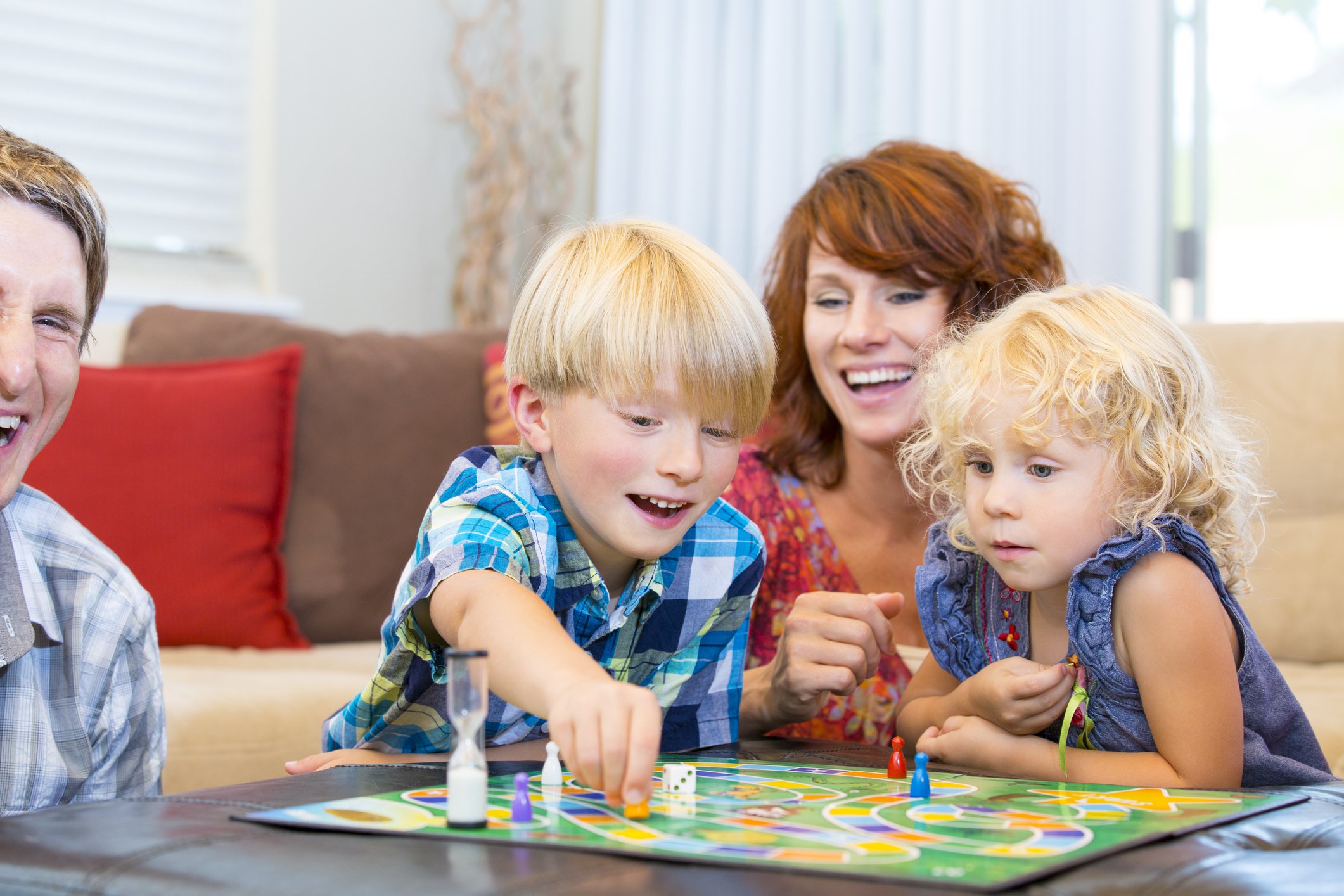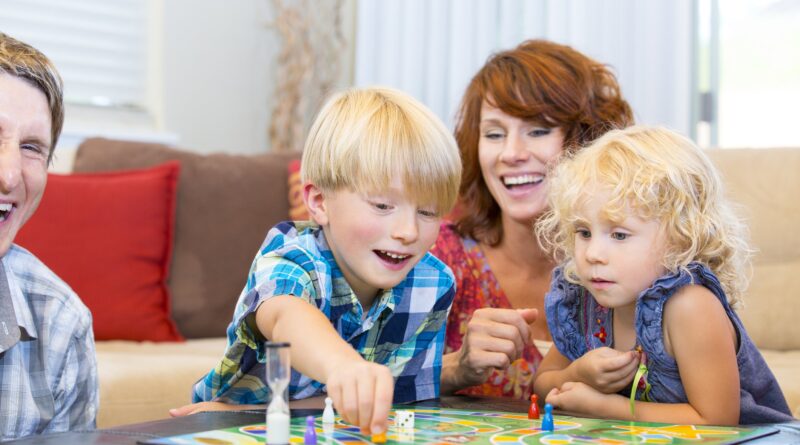Top Family-Friendly Board Games for Fun and Learning

Board games have long been a favorite pastime for families, providing hours of entertainment while fostering essential skills such as critical thinking, problem-solving, cooperation, and creativity. With the resurgence of board games in recent years, the market is now filled with an incredible variety of family-friendly options that balance fun with educational value. These games not only entertain but also help children and adults alike develop cognitive, social, and emotional skills in a natural and enjoyable setting.
If you’re looking to bring family members of all ages together for a fun-filled game night that stimulates learning and development, here are some of the best family-friendly board games you can consider.
1. Ticket to Ride
Age: 8+
Players: 2-5
Learning Focus: Strategy, Geography, Planning
Ticket to Ride is a popular game where players collect train cards to claim railway routes connecting cities across a map of either North America, Europe, or other regions, depending on the version you choose. The game involves strategic thinking and planning, as players must carefully decide which routes to claim while keeping an eye on their opponents. Geography comes into play as players become more familiar with various cities and regions.
Ticket to Ride is easy to learn but offers deep strategy, making it enjoyable for both children and adults. The game encourages map-reading skills and introduces players to concepts of risk management and long-term planning, as claiming longer routes yields more points but comes with the risk of being blocked by other players.
Why It’s Great for Families:
- Simple yet strategic: Easy for kids to pick up but still challenging for adults.
- Educational: It fosters an understanding of geography and critical thinking.
2. Catan (Formerly Settlers of Catan)
Age: 10+
Players: 3-4 (expansions available)
Learning Focus: Resource Management, Negotiation, Strategic Thinking
In Catan, players settle on an island, collecting resources such as brick, lumber, wool, grain, and ore to build roads, settlements, and cities. The game involves trading resources, making tactical decisions on settlement placements, and strategizing to block opponents. The modular board setup ensures that no two games are the same, keeping each session fresh and exciting.
Catan is particularly valuable for teaching resource management and negotiation skills. Players must learn how to balance short-term needs with long-term goals, and trading resources with other players introduces an element of diplomacy and cooperation.
Why It’s Great for Families:
- Teaches economic principles: Helps children understand the value of resources and trade.
- Engages players of different ages: Younger kids will enjoy building, while older players can dive into deeper strategies.
3. Carcassonne
Age: 7+
Players: 2-5
Learning Focus: Spatial Awareness, Strategic Planning, Problem Solving
Named after the medieval French city, Carcassonne is a tile-placement game where players draw and place tiles to build cities, roads, monasteries, and fields. Each turn requires careful planning, as players must decide whether to place followers (meeples) on specific areas of the board to score points.
Carcassonne is an excellent game for developing spatial awareness and problem-solving skills. As players place tiles, they need to visualize how their current move will affect future opportunities for expansion. The game also fosters strategic thinking, as players must decide when and where to place their followers for maximum points.
Why It’s Great for Families:
- Quick to learn: Rules are simple, but the strategy is rich.
- Encourages creative thinking: The modular game board evolves as players place tiles, encouraging adaptability and forward-thinking.
4. Dixit
Age: 8+
Players: 3-6
Learning Focus: Creativity, Communication, Abstract Thinking
Dixit is a beautifully illustrated game that focuses on storytelling and creativity. Each player takes turns as the storyteller, describing a card from their hand using a phrase, sentence, or even a sound. Other players then submit a card from their hand that best matches the description, and everyone votes on which card they think belongs to the storyteller.
The challenge in Dixit lies in being ambiguous enough that not everyone guesses your card, but clear enough that at least one player does. This balance encourages players to think creatively and abstractly. Dixit is ideal for families who enjoy imaginative play and storytelling.
Why It’s Great for Families:
- Fosters creativity: The abstract nature of the game encourages out-of-the-box thinking.
- Non-competitive: Dixit is less about winning and more about enjoying the imaginative process.
5. Blokus
Age: 5+
Players: 2-4
Learning Focus: Spatial Reasoning, Strategy, Problem Solving
Blokus is a fast-paced game where players take turns placing their uniquely shaped pieces on a grid, aiming to cover as much area as possible while blocking their opponents. The catch is that each piece must touch another piece of the same color, but only at the corners.
Blokus is an excellent game for younger children, as it helps develop spatial reasoning and problem-solving skills. Players must plan ahead to maximize their board coverage while minimizing opportunities for their opponents. The game is simple enough for young kids to understand but strategic enough to engage adults as well.
Why It’s Great for Families:
- Simple rules: Easy for even young children to grasp.
- Visual and strategic: Great for developing spatial awareness and tactical thinking.
6. The Game of Life
Age: 8+
Players: 2-6
Learning Focus: Decision-Making, Life Skills, Financial Literacy
The Game of Life has been a family favorite for decades. In this game, players navigate a colorful 3D board that represents the journey through life, from college and career choices to marriage, children, and retirement. Along the way, players make decisions that impact their financial stability, such as whether to buy a house or invest in education.
This game provides an entertaining way to introduce children to real-life concepts such as financial planning, decision-making, and the consequences of life choices. It opens the door for valuable conversations about money management and long-term planning in a fun and accessible way.
Why It’s Great for Families:
- Life lessons: Introduces children to important life skills in a playful context.
- Fun for all ages: Younger kids enjoy the physical aspects of the game, while older players can appreciate the strategic decision-making.
7. Codenames
Age: 10+
Players: 2-8 (best with 4-6)
Learning Focus: Vocabulary, Communication, Teamwork
Codenames is a word-based party game where two teams compete to identify their agents (coded by words) based on one-word clues given by their team’s spymaster. The spymaster must be strategic with their clues, as they need to give a single word that can connect multiple words on the board while avoiding the other team’s agents or the deadly assassin word.
Codenames is an excellent game for improving vocabulary and communication skills. Players need to think creatively to give or interpret clues, and teamwork is essential as teammates collaborate to figure out the best guesses.
Why It’s Great for Families:
- Enhances language skills: Great for vocabulary development and word association.
- Inclusive: The game scales well for different group sizes and age ranges.
8. Sleeping Queens
Age: 6+
Players: 2-5
Learning Focus: Math Skills, Memory, Strategy
Sleeping Queens is a whimsical card game in which players attempt to wake up sleeping queens by playing the correct cards, such as knights, wands, or potions. The game also incorporates simple arithmetic, as players use math-based cards to subtract, add, or swap cards with other players.
This game is particularly appealing to younger children, as it combines a playful fantasy theme with basic math practice. It also helps develop memory skills, as players need to keep track of which queens are still in play and which cards their opponents have used.
Why It’s Great for Families:
- Math made fun: Integrates arithmetic in a light, enjoyable way.
- Engaging theme: The fantasy elements are appealing to young children.
9. Pandemic
Age: 8+
Players: 2-4
Learning Focus: Cooperation, Problem Solving, Critical Thinking
Pandemic is a cooperative game where players work together as a team of specialists trying to stop the spread of diseases around the world. Each player takes on a unique role, such as a medic or scientist, and must collaborate with their teammates to plan strategies, manage outbreaks, and find cures before the diseases spread out of control.
Pandemic is an excellent way to teach children the value of cooperation and teamwork. It also encourages critical thinking, as players must evaluate risks, make decisions under pressure, and adapt their strategy as the game unfolds.
Why It’s Great for Families:
- Team-based: Encourages cooperation and communication.
- Challenging but rewarding: Offers a good balance of difficulty for both kids and adults.
Conclusion
Board games offer families a unique opportunity to spend quality time together while also fostering important cognitive, social, and emotional skills. Whether your goal is to teach your children about strategic thinking, cooperation, financial literacy, or simply to have fun, there is a board game that suits every family’s needs. From timeless classics like Catan and Ticket to Ride to newer innovations like Dixit and Pandemic, these games ensure hours of entertainment, laughter, and learning for family members of all ages.

